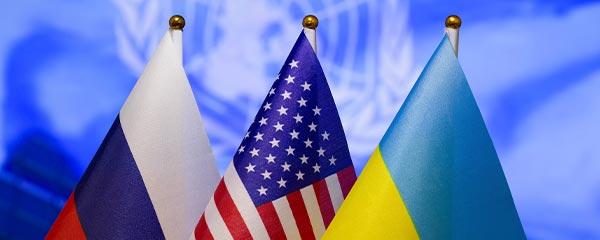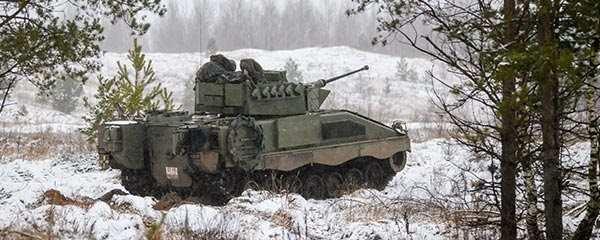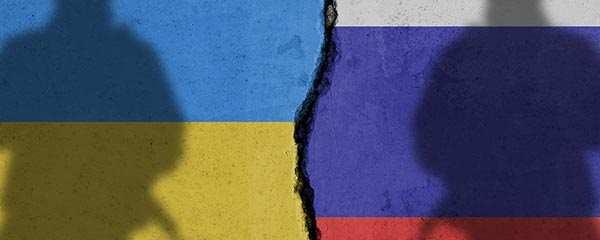Story Highlights
- More Russians see economic conditions improving than getting worse
- Majorities across all regions are satisfied with their standard of living
- Regions closest to the conflict have seen huge improvements in perceptions
WASHINGTON, D.C. -- Even as the West slapped Moscow with economic sanctions after Russia invaded Ukraine last year, Russians remained as optimistic as ever about their local economic conditions. More than two in five Russians (44%) surveyed between August and November last year saw their local economic circumstances getting better, while 29% saw them getting worse.
Russians’ relatively rosy economic outlook is striking given the events of 2022 and the economic uncertainty that came with them. Russia rocked the geopolitical order and became a pariah on the global stage after launching a full-scale invasion of Ukraine in late February.
Many Western countries introduced -- or extended existing -- economic sanctions against Russia, targeting its financial system, oil and gas exports, and thousands of oligarchs. Several major global brands also pulled out of the Russian market.
As a result, the World Bank, International Monetary Fund, and Organisation for Economic Co-operation and Development all predicted declines of between 2% and 4% in Russian gross domestic product in 2022.
However, this has not translated into worse economic perceptions at the local level. Instead, they improved by four percentage points between 2021 and 2022. And in 2023, the IMF even predicts a small 0.3% growth in the Russian economy despite far-reaching Western sanctions.
Why Are Russians’ Economic Perceptions So Buoyant?
There are two possible explanations behind Russians’ resilient outlook.
The first is that sanctions may not be hitting the Russian economy as much as the West and its allies initially hoped. Russia’s status as a big commodity exporter is helpful in this regard.
Other large economies such as India and China have not only increased their purchases of Russian oil, but they are also making their payments in local currencies. This acts as a way around the removal of Russian banks from the international finance system, SWIFT.
In addition, much of Europe including Germany and Italy remains heavily reliant on Russian gas exports -- where prices remain high -- making it difficult to cut back consumption in a more meaningful way.
Many of Russia’s other neighbors -- such as Turkiye, Belarus and Kazakhstan -- are also increasing trade with Russia in products targeted heavily by Western sanctions.
In sum, Russia has been able to readjust to sanctions and trade more effectively with other parts of the globe. This has contributed to the fairly optimistic outlook across much of the country. For the first time on record, a majority of people in every region across Russia are now satisfied with their standard of living.
Recent reports also suggest that President Vladimir Putin is pushing the Bank of Russia to spread more positive economic messages and send the signal that it is on the right path for the years ahead.
The second reason for buoyant economic perceptions is an effect where poll ratings rise at times of national crisis, referred to as a “rally ‘round the flag.” Many academics have noted how a leader’s domestic popularity can improve in the face of an external threat such as an international conflict, or indeed a global pandemic.
║┌┴¤═° data about standards of living and leadership approval in Russia confirm this. Russians’ satisfaction with their standard of living shot up by 15 points last year to 57%. Likewise, two-thirds of Russians (66%) approved of their leadership in 2022, up from 50% the year before. ║┌┴¤═° also measured a rally effect in 2014 when Crimea joined Russia, which in many ways was a precursor to Putin’s later invasion.
The rally effect is especially salient in Southern Russia and the North Caucasus. These two regions -- both close to the fighting along the eastern border of Ukraine -- have seen some of the most rapid increases in satisfaction with standards of living and economic perceptions since the invasion.
Bottom Line
Western nations presented a united front following the invasion of Ukraine a year ago. Widespread sanctions undoubtedly hit the Russian economy hard in certain ways -- but in others, Russia has been able to insulate itself and absorb some of the negative effects.
Questions remain as to how long this situation may last. The war in Ukraine shows no sign of abating anytime soon. Over the long term, extensive sanctions may continue to grind down the Russian economy and gradually make it more difficult for Putin to fund his military revanchism.
Rally effects can also abate quickly. Approval of Russian leadership fell consistently for four years in a row after Crimea and the intervention in Syria in 2014 and 2015. Should a similar trend occur in the next few years, the intended consequences of Western sanctions may yet become more apparent.
To stay up to date with the latest ║┌┴¤═° ║┌┴¤═° insights and updates, .
For complete methodology and specific survey dates, please review .
Learn more about how the works.




